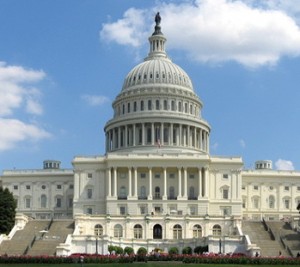 I’ve often discussed the use of research as a marketing tool. But a recent article in the Journal of Vertebral Subluxation Research, by its editor, Matthew McCoy, DC, discussed the relationship between research and politics. Although most of us cherish our image of research as “pure” and untainted by mundane considerations like business or politics, the reality isn’t that pristine.
I’ve often discussed the use of research as a marketing tool. But a recent article in the Journal of Vertebral Subluxation Research, by its editor, Matthew McCoy, DC, discussed the relationship between research and politics. Although most of us cherish our image of research as “pure” and untainted by mundane considerations like business or politics, the reality isn’t that pristine.
Dr. McCoy noted in his article, “Politics drive policy. And politicians need the research and evidence to create and/or alter polity. Ignoring politics is suicide.”
The most obvious example is public policy on second hand smoke. Without the clinical research showing that non-smokers are affected by exposure to cigarette smoke, legislators would not have imposed smoking regulations. A more recent example is stem cell research. Government decisions on stem cell research are based almost entirely on the results of biomedical research. (More precisely, they are based on public opinion, which, in turn, is based on media reports about that research.) If research increasingly shows dramatic potential for stem cell use to have a positive effect on human health, the public will clamor for it. Government will fund research and the field will become an integral part of medicine. Public policy will be driven by research.
If health care research remained within the sanctuary of the lab or classroom, it would not have the impact it has on society. Only by using that research to influence government leaders can significant legislative changes be instigated. While the idea of a relationship between research and politics may make us cringe, it’s a necessary one and one that could actually benefit chiropractic.
The fact is, we need millions of dollars in government funding for research. We need laws that safeguard the right of all people to seek chiropractic care without interference by medical gatekeepers. We need sanctions against insurance companies that impose prejudicial policies against chiropractors. We need to have chiropractors recognized as health care professionals on an equal footing with medical doctors, both in public and private sectors. In short, we need politics. But to influence politics, we must present hard, scientific evidence to lawmakers, both in the US and the rest of the world. We have to go to the politicians with research proving that chiropractic has long-term beneficial effects on human health.
That’s how we managed to carve our small “back pain” niche. We had research showing that chiropractic was more efficient, and more cost-effective, than medical treatment for reducing low-back pain in adults. Unfortunately, that’s been the bulk of our research efforts to date. According to the National Center for Complementary and Alternative Medicine (a part of the National Institutes of Health), “So far, the scientific research on chiropractic and low-back pain has focused on if, and how well, chiropractic care helps in relieving pain and other symptoms that people have with low-back pain.” Based on this research, chiropractors have become established as (or, in my opinion, limited to being) “back pain specialists.”
Can you imagine if we were able to present equally compelling research showing that chiropractic helped boost the human immune system? What about if there were scientific data showing that chiropractic care could address hypertension, asthma, diabetes, or other health problems? What if we had the “proof” that subluxation correction is a primary factor in wellness and quality of life?
With such proof, the public would demand that chiropractic be put on the top of the list of health care priorities and practitioners would be elevated to the status of wellness care specialists. We’d receive a large share of the $28 billion in annual National Institute of Health research funding and laws would be passed to secure chiropractic’s place in the health care system. We already know that research is an important marketing tool, one that can be used to convince the public to make chiropractic part of their health care routine. Now, we need to recognize the additional and vital role it can play in political activism.
Of course, research won’t get up and walk to Washington on its own. We have to take it there, present it to the legislators and make it understandable and persuasive. Whether we like it or not, chiropractic is a political issue and can be a powerful tool for positive political change.
Dr. Jackson is chief executive officer of Research and Clinical Science, a private sector research program exploring issues of subluxation correction and chiropractic care as they relate to health and wellness. Previously, he served as president of the Chiropractic Leadership Alliance and Creating Wellness Alliance and was owner/operator of several private practice offices in California and Idaho that specialized in high volume, family wellnessbased care. For more information on RCS, call 800-909-1354 or 480-303-1694, or visit the RCS website at www.rcsprogram.com.
